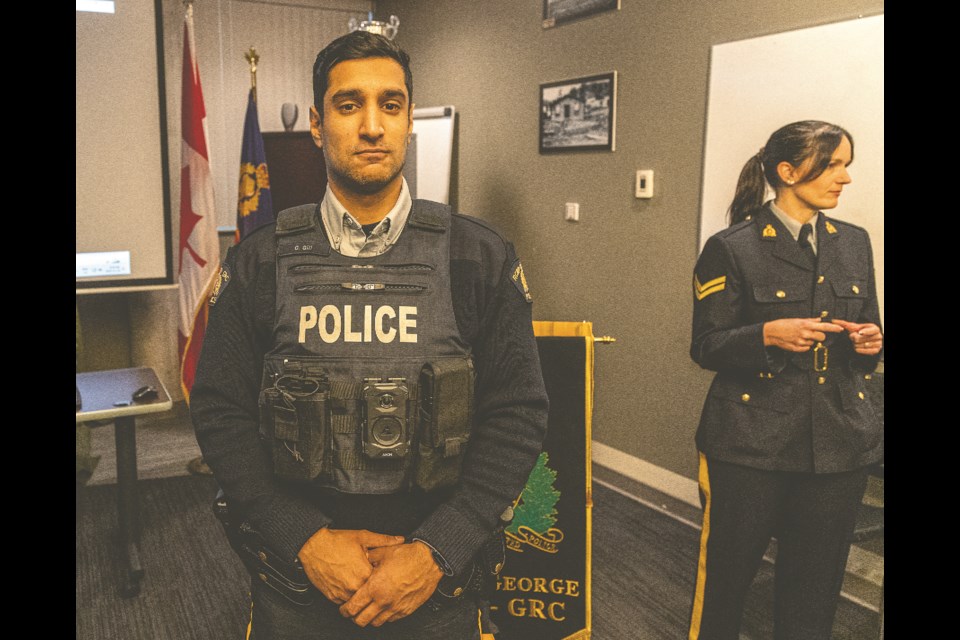Prince George RCMP frontline officers will begin wearing body cameras on Sunday, Dec. 8.
As one of the 86 RCMP detachments selected to pilot the $50 million federal program, about 100 Prince George members will be part of the initial rollout phase, which started Nov. 18 in other detachments across the country.
Including the cost of the digital management system and transcription software subscriptions, the cost of each camera works out to about $3,000. City taxpayers will have to bear the approximate $300,000 cost of outfitting 100 officers with cameras which attach to their vests.
The first frontline officers receive their initial training with the cameras on Dec. 8 and will be wearing the cameras that afternoon as the detachment trains its four watches and support sections, such as youth services, police service dogs and the downtown safety unit.
“We are excited to have the body-worn cameras roll out here in Prince George as the first of the police detachments in northern BC to be rolling it out,” said Prince George RCMP Cpl. Jennifer Cooper, at a media conference Nov. 28 at the downtown detachment.
There are about 156 RCMP members in Prince George and most will eventually be using the cameras. Officers will be obligated to activate their cameras whenever they leave their patrol vehicle to response to a service call. The cameras will not be used for surveillance or 24-hour recording.
“Body-worn cameras will bring additional evidence that we can put forward before the justice system so increased objective evidence will be of value, so overall it will enhance the evidence that goes before the courts,” said Prince George RCMP Spt. Darin Rappel.
“I think the implementation of the body-worn cameras will enhance public trust, it will provide an objective first-person view of the interaction that a police officer is having with a member of the community. It will be available to the courts if the file proceeds that way or perhaps in an oversight capacity. An example would be the IIO (Independent Investigations Office), if they have requirements for something along those lines, or perhaps if we get a public complaint.”
The Calgary Police Service reported a marked decrease in public complaints against officers since body-worn cameras were introduced in 2019. A report issued in May showed 58 per cent of complaints of officer misconduct were resolved using footage obtained by the cameras. Seventy per cent of complaints filed in Calgary in 2023 were resolved within a year, compared to 53 per cent in 2022 and 35 per cent in 2021.
There will be an additional workload put on officers during each shift while they download the data from their cameras either at their offices or through their laptop computers/phones. That video footage will be sent to cloud storage maintained by Axon, a third-party global safety management company. The high-definition video will be stored for a minimum of 30 days and for as long as two years or longer. Video that will have to be transcribed and vetted will require more time and the system will provide staff that will allow that transcription service to be done elsewhere.
“There’s unique disclosure concerns here in BC versus other provinces where it’s been rolled out and we’ll wait to see what that looks like,” said Rappel. “We don’t have absolute clarity on that. But it’s new, we are the pilot, we’re considered wave zero here in Prince George so we’ll see, working with Crown (prosecutors) on their expectations on what we can deliver and the timelines of that delivery.
“Those conversations are ongoing right now.”



